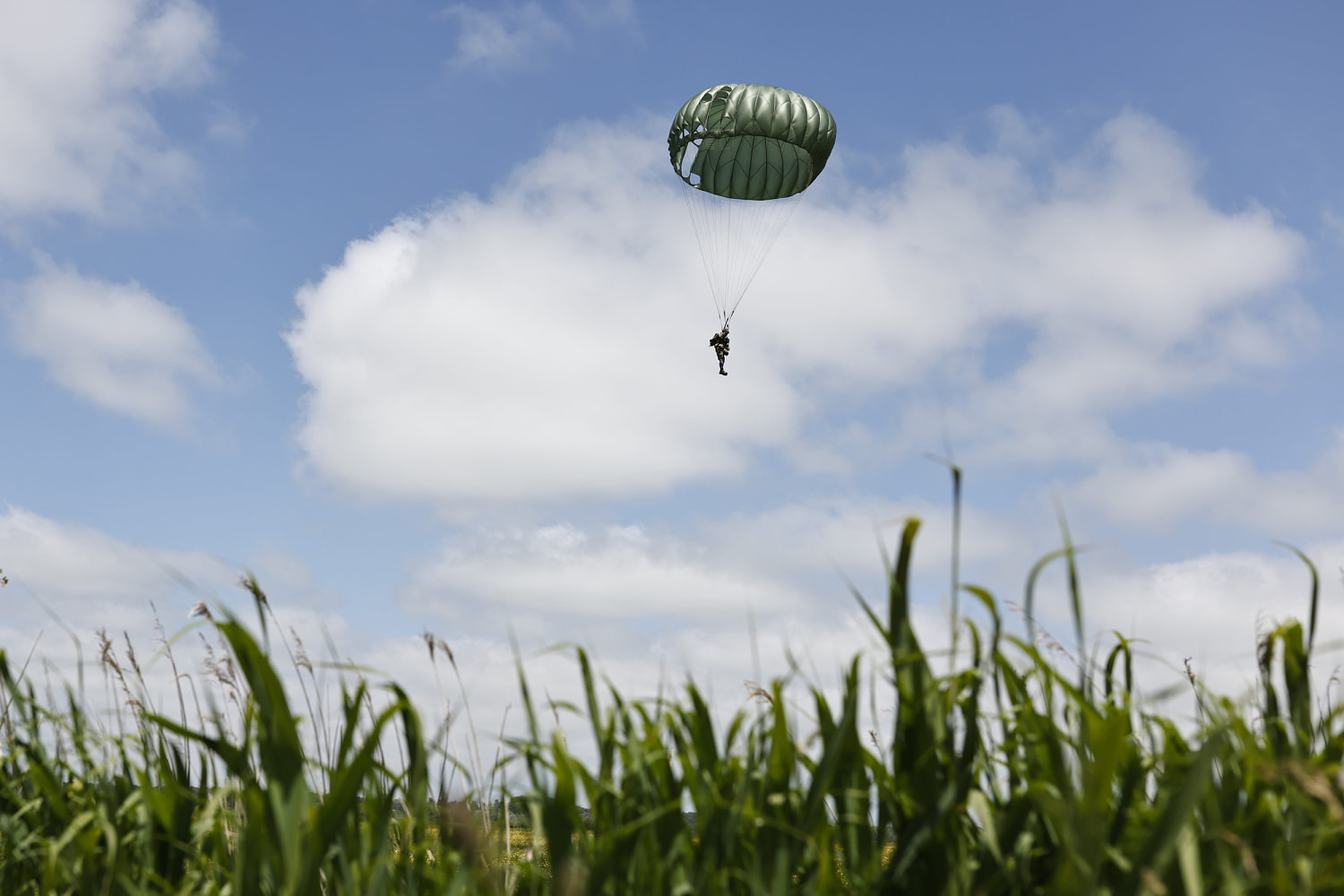A parachute jump over Normandy kicks off D-Day 80th anniversary commemorations

Two of the planes, christened “ That’s All, Brother” and “Placid Lassie, “ were D-Day veterans, among the thousands of C-47s and other aircraft that on June 6, 1944, formed part of what was the largest-ever sea, air and land armada. Allied airborne forces, which included troops making hair-raising descents aboard gliders, landed first early on D-Day to secure roads, bridges and other strategic points inland of the invasion beaches and destroy gun emplacements that raked the sands and ships with deadly fire.
The planes took off Sunday from Duxford, England, for the 90-minute flight to Carentan. The Normandy town was at the heart of D-Day drop zones in 1944, when paratroopers jumped in darkness into gunfire, many scattering far from their objectives.
Sunday’s jumpers were from an international civilian team of parachutists, many of them former soldiers. The only woman was 61-year-old Dawna Bennett, who felt history’s force as she exited her plane into the Normandy skies.
“It’s the same doorway and it’s the same countryside from 80 years ago, and it’s like, ‘Oh my God, I’m so thankful I’m not doing this at midnight’” she said. “They keep saying it’s the greatest generation and I truly believe that.”
Dozens of World War II veterans are converging on France to revisit old memories, make new ones, and hammer home a message that survivors of D-Day and the ensuing Battle of Normandy, and of other World War II theaters, have repeated time and time again — that war is hell.
“Seven thousand of my marine buddies were killed. Twenty thousand shot up, wounded, put on ships, buried at sea,” said Don Graves, a U.S. Marine Corps veteran who served in Iwo Jima in the Pacific theater.
“I want the younger people, the younger generation here to know what we did,” said Graves, part of a group of more than 60 World War II veterans who flew into Paris on Saturday.
The youngest veteran in the group is 96 and the most senior 107, according to their carrier from Dallas, American Airlines.
“We did our job and we came home and that’s it. We never talked about it I think. For 70 years I didn’t talk about it,” said another of the veterans, Ralph Goldsticker, a U.S. Air Force captain who served in the 452nd Bomb Group.
Of the D-Day landings, he recalled seeing from his aircraft “a big, big chunk of the beach with thousands of vessels,” and spoke of bombing raids against German strongholds and routes that German forces might otherwise have used to rush in reinforcements to push the invasion back into the sea.
“I dropped my first bomb at 06:58 a.m. in a heavy gun placement,” he said. “We went back home, we landed at 09:30. We reloaded.”




